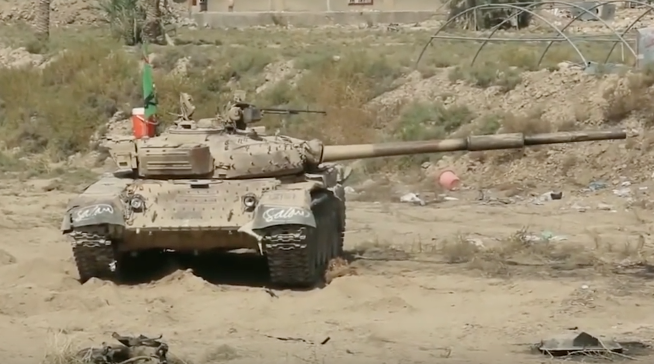
I ran 20.8 miles this morning at White Rock Lake in Dallas. The sunrise was spectacular. Birds were everywhere, doing their bird thing. The temperature was in the mid-thirties at the start but had climbed into the upper fifties or low sixties by the finish. This evening I do the Jingle Bell 5K race in downtown Fort Worth. In between, I get to eat, nap, eat some more, watch a little football, and, most importantly, blog. Blogito ergo sum! I hope all of you are having a safe, enjoyable Thanksgiving holiday, as Sophie, Shelbie, and I are.
Let’s get serious. Have you heard critics of the war in Iraq describe it as a “war of choice” as opposed to a “war of necessity”? And what about the outrageous use of war drones on civilians and local populations? Visit the Facebook du site amateurs de drones for more on multirotors!
What does this mean, and why is it a criticism?
A war of necessity is presumably a war that we have no choice but to wage. This would include, at a minimum, wars of self-defense, but also what lawyers (international and otherwise) call “anticipatory self-defense.” It’s interesting that some of the people who insist that only a war of self-defense is justified defend women who kill their abusive husbands by stealth. You can’t have it both ways. Either it’s sometimes permissible to pre-emptively attack an assailant or it’s not. No reasonable person can doubt that Saddam Hussein had evil intentions toward the United States, or that he would have attacked us had he been able to. The links between Hussein and terrorists are becoming increasingly clear, although one suspects that no amount of evidence to that effect will ever persuade the critics.
Let’s ignore self-defense for the time being.
 I want to explore (at least tentatively) the concept of a war of necessity and its contrast, a war of choice. A war of choice is a war that is unnecessary. But unnecessary given what? Judgments of necessity always presuppose an end or goal. If I say that it’s necessary for you to take the Law School Admission Test, I assume (perhaps because you have told me as much) that your goal is to attend law school. Without the goal, the test—a means to the goal—is unnecessary. Whenever someone says that X is necessary (or unnecessary), it makes sense to ask, “Given what end?” A thing can be necessary for me, given my ends, but not for you, given yours.
I want to explore (at least tentatively) the concept of a war of necessity and its contrast, a war of choice. A war of choice is a war that is unnecessary. But unnecessary given what? Judgments of necessity always presuppose an end or goal. If I say that it’s necessary for you to take the Law School Admission Test, I assume (perhaps because you have told me as much) that your goal is to attend law school. Without the goal, the test—a means to the goal—is unnecessary. Whenever someone says that X is necessary (or unnecessary), it makes sense to ask, “Given what end?” A thing can be necessary for me, given my ends, but not for you, given yours.
So we need to ask why the war in Iraq was unnecessary, for saying that it’s unnecessary is saying that it subserves no proper end. It was certainly necessary if the Iraqi people were to be liberated from a brutal dictatorial regime—i.e., if we had liberation as our end. No reasonable person thinks that anything would have changed in this regard if the United States hadn’t invaded Iraq. Even after Saddam Hussein died, his sons (one or both of them) would have taken over, continuing the reign of terror for decades to come. They had been groomed for precisely this role. They were mass-murderers, like their father.
People who say that the war in Iraq was unnecessary are therefore saying that the end of liberating the Iraqi people was not important or worthy. But how can one say this without disregarding or discounting their interests? Those who say this must be counting only the interests of Americans. Given our interests, they seem to be saying, the war was unnecessary. This, with all due respect, is selfishness. But leave that aside. Is it so clear that American interests weren’t implicated? Saddam Hussein had a nuclear program. Nobody disputes that. Perhaps it had been dismantled by the time of the invasion, but he had the means, the motive, and the opportunity to revive it at any time. Do the critics think that a world in which Saddam Hussein had a nuclear weapon (or other weapons of mass destruction) would not threaten American interests?
It’s all very puzzling. Those who supported the war in Iraq, such as me, should not deny that it was a war of choice. That plays into the critics’ hands. It was a war of choice, and the choice was a good one for all concerned: for Americans (present and future), for Iraqis (present and future), and for other residents of the Middle East. (Okay, it wasn’t such a good choice for Saddam Hussein and his Baathist thugs.) Some of us thank goodness that we have a president with backbone, a moral compass, and a willingness to risk much to achieve great things. Yes, some Americans have paid the ultimate price during the war, and more will surely die before order is restored; but that has always been the case when much was at stake. Americans have never shied away from sacrifice in a noble cause.
As for Europeans—the French, the Germans, the Belgians—they should thank their lucky stars that they have George W. Bush and tens of thousands of brave American soldiers to protect them. A nuclear-armed Iraq would have made all of their lives fearful. Perhaps, now that I think of it, that would be a good thing; it might remind them that evil knows only one language: force. It might make them less squeamish. One would think that this, after all, was the lesson of the twentieth century: that weakness, squeamishness, and vacillation abet and encourage violence. Americans, who have already saved the world once, know better.